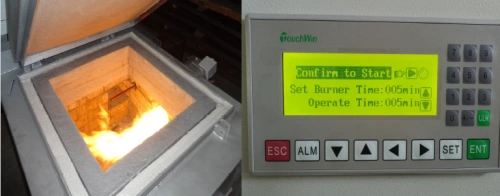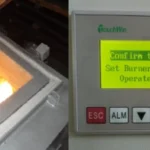Tanzania Hospital Waste Incinerator: UNDP Supported Projects and HICLOVER Solutions
Hospital waste management is a growing concern in Tanzania, where expanding healthcare infrastructure, rising population, and international donor-funded programs demand safe and sustainable disposal of biomedical waste. In recent years, initiatives such as the UNDP supported incinerator project in Tanzania and other UN projects and donor-funded healthcare facilities have emphasized the need for modern, reliable, and environmentally compliant incineration technologies. The HICLOVER hospital waste incinerator series has emerged as a strong solution, specifically designed for Tanzania’s environmental, regulatory, and operational conditions.
Tanzania’s Waste Management Challenges
Hospitals in Tanzania, from national referral hospitals in Dar es Salaam to regional facilities in Arusha, Mwanza, and Mbeya, face pressing challenges in handling biomedical waste. Infectious waste, sharps, and pathological residues are often mixed with general solid waste, creating high risks of contamination. Many district-level hospitals still rely on outdated brick incinerators or open burning, which fails to meet environmental standards.
At the same time, international donors including the United Nations Development Programme (UNDP), the World Bank, and bilateral partners have funded healthcare projects aimed at strengthening waste management systems. These programs specifically highlight the adoption of dual-chamber hospital waste incinerators with secondary combustion and sufficient gas retention time to reduce emissions such as dioxins and furans.
UNDP Supported Incinerator Projects in Tanzania
The UNDP supported incinerator project in Tanzania has targeted healthcare facilities across several regions, with emphasis on safe disposal capacity, environmental protection, and sustainable operation. Specifications from these projects often include:
-
Dual-Chamber Combustion: Primary chamber for waste destruction and a secondary chamber operating at 1000C1300°C with at least 2 seconds residence time.
-
Capacity Range: From small-scale 30 kg/hour units for rural health centers to 200C300 kg/hour systems for regional hospitals.
-
Flue Gas Treatment: Optional wet scrubbers and filtration systems to meet international emission standards.
-
Containerized Configuration: Mobile or modular systems that can be installed quickly without permanent civil works, suitable for remote hospitals and donor-supported clinics.
These requirements align closely with the HICLOVER TS Series of hospital waste incinerators, which have already been deployed in donor-funded projects across Africa, including in Kenya, Rwanda, Somalia, and Uganda.
HICLOVER Hospital Waste Incinerators for Tanzania
For Tanzania’s healthcare sector, HICLOVER offers specialized models designed to comply with both Tanzania Bureau of Standards (TBS) regulations and international benchmarks:
-
HICLOVER TS30 PLC: Compact incinerator for small hospitals and health centers, with 30C35 kg/hour capacity, twin chambers, and PLC-controlled operation.
-
HICLOVER TS200 PLC: Suitable for regional hospitals, with 180 kg/hour burn rate, 1.98 m3 primary chamber, and full PLC automation for safe handling of biomedical waste.
-
HICLOVER TS300 PLC: High-capacity unit with 220 kg/hour throughput, 2.4 m3 combustion chamber, dual chamber design, and optional wet scrubber system.
Technical Features Beneficial for Tanzania
-
PLC Automatic Control: Minimizes operator error and enhances safety.
-
Top Loading Design: Ensures easy waste feeding for hospital staff.
-
Italy-Brand Burners: Stable combustion with diesel or natural gas, both readily available in Tanzania.
-
Optional Containerized Build: Ideal for donor-funded projects requiring rapid installation at hospitals in rural or semi-urban areas.
-
High-Temperature Retention (HTR): Automated adjustment for efficient waste destruction and reduced fuel consumption.
UN and Donor-Funded Healthcare Facilities in Tanzania
Projects supported by UNDP, the World Bank, and other partners have provided incinerators for county-level hospitals, maternal health centers, and emergency response facilities. These installations are critical in preventing the spread of infections, especially in regions where outbreaks like cholera or Ebola pose risks.
By integrating HICLOVER hospital waste incinerators, Tanzania’s healthcare system benefits from:
-
Safe Disposal: Ensuring syringes, sharps, and infectious materials cannot be reused or cause contamination.
-
Environmental Compliance: Meeting WHO guidelines and donor funding conditions.
-
Durability in Harsh Conditions: Designed to withstand Tanzania’s coastal humidity, rural dust, and inconsistent power supply.
Conclusion
The demand for modern hospital waste incinerators in Tanzania continues to grow, driven by UNDP supported incinerator projects and other international donor-funded healthcare initiatives. The HICLOVER TS30 PLC, TS200 PLC, and TS300 PLC models provide proven solutions that meet both technical requirements and on-the-ground realities.
For hospitals, NGOs, and donor agencies seeking reliable waste treatment technology in Tanzania, HICLOVER containerized dual-chamber incinerators are the ideal choice for safe, efficient, and sustainable biomedical waste disposal.
For inquiries and technical specifications, visit www.hiclover.com or contact sales@hiclover.com.

